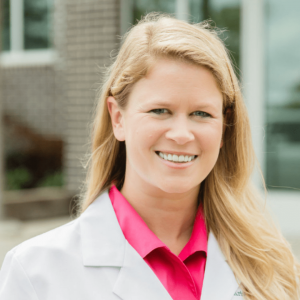
Melissa Hoegh, Resident Director
Work Done Well: Melissa Hoegh Melissa Hoegh Resident Director of Ohio Hall at Judson University Follow Melissa on Instagram Melissa Hoegh resides on campus as
Women & Work
Dr. Mary Ann McMillan
Director of Student Conduct and Title IX Investigator
at William Jessup University, Adoptee and Former Missionary
Dr. Mary Ann McMillan currently serves as the Director of Student Conduct and Title IX Investigator at William Jessup University in Rocklin, CA, helping students walk through hard seasons and being an advocate for students who are afraid to seek help. She has worked in Student Affairs for 5 years and has a heart for college students.
She is an adoptee who is still healing and walking through her own personal journey of spending time in foster care and processing her past traumas. She is a writer and an advocate for foster kids and adoptees and passionate about helping them find their voice.
Prior to her current role, Dr. McMillan served as the Global Training Director at Saddleback Church and she spent two and a half years serving in Europe with the International Mission Board.
She is active in her local church and serves on the Outreach team at Bayside Church. In her free time, she enjoys being outdoors, building furniture, drinking sweet tea, photography, and going on long walks.
Education:
Bachelor of Science in Law and Criminal Justice from the University of North Georgia
Master of Arts in Intercultural Studies from Southeastern Baptist Theological Seminary
Doctor of Education from Southeastern Baptist Theological Seminary
I am Dr. Mary Ann McMillan. I’m originally from Georgia, but I moved to California about five years ago. I’m working at William Jessup University. I’m the Director of Student Conduct. This is a new role for me. I was the Director of Campus Ministries here for a while and Assistant Director before that.
I’ve worked in ministry for about 15 years in a church setting, and I’ve spent years overseas as a full-time missionary serving in 30 different countries.
I’ve been working in Christian higher education for about six years now. I got my undergrad from the University of North Georgia in Law Criminal Justice. And then I got my Master’s and Doctorate from Southeastern Baptist Theological Seminary in Wake Forest, North Carolina. I got my Master’s in Intercultural Studies and got my Doctorate in Education.
A few fun facts about me: I love books and I love tea, especially herbal tea. Being a Georgia girl, I love sweet tea. Love popcorn. I’m an Enneagram 9. And I walk every day at least two miles.
Honestly, I had no clue what God was doing until after I became a believer in college. I didn’t have a relationship with the Lord until then. I didn’t grow up in a Christian household or anything like that, but I was involved with the Baptist Student Union in college and had an incredible campus minister that had a great ministry and led me to Christ. I started growing in my faith and learned to start trusting God.
One of my life verses in Proverbs 3:5-6 talks about trusting in the Lord and leaning on Him in His path. And He’s gonna guide us through life. I feel like for me, God has always placed people in my life to always point me to Him. And so life has not been easy for me, but I’ve always had people come alongside me to help guide me through every stage of life.
talks about trusting in the Lord and leaning on Him in His path. And He’s gonna guide us through life. I feel like for me, God has always placed people in my life to always point me to Him. And so life has not been easy for me, but I’ve always had people come alongside me to help guide me through every stage of life.
And it didn’t come from my family. It came from the church or came from Christian organizations. I’ve tried to knock on doors in life to try to walk through them and God hasn’t always opened those doors for me. But the doors that He has allowed to open, I’ve been able to walk through them. He’s been able to help guide me through any opportunity that I was supposed to be a part of.
I came to recognize my God-given gifts through action, trying different things, and having people affirm those gifts.
Dr. Mary Ann McMillan Tweet
Through action, trying different things, and having people affirm those gifts. Through action and saying yes to several opportunities. You know, as a young person, you don’t know what your gifts are. And so you try a couple of different things. Speaking, writing, leading different things, doing missions. As I’ve been able to say yes to those opportunities I’ve seen that I’m actually really great in this area. And having people in my life affirm those gifts. Sometimes I think we think that we’re great at something and then other people are like that’s not where you should be serving.
For women that are wanting to pursue a theological education, I say, do it. You have no idea what God is going to do with that degree for you. You may not be able to serve in ministry full time. You may not be able to do what you want to do with it, but God has a plan for you.
Dr. Mary Ann McMillan Tweet
Getting a theological education provides a solid foundation for ministry. You’re going to learn and get some training. You’re going to get the things that you need. You’re going to be equipped to be able to serve. But honestly I think the best training for ministry is experience. So being able to serve in ministry is where you’re going to get the best training ever. Seminary is going to give you the solid foundation. It’s going to equip you to be launched out into ministry and better equipped to do it.
For women that are wanting to pursue a theological education, I just say, do it. You have no clue what God is going to do with that degree for you. I mean, you may not be able to serve in ministry full time. You may not be able to do what you want to do with it, but God has a plan for you.
I know for me I just switched from serving in campus ministries to now doing conduct. And that was really hard for me stepping out of ministry, even though this is still a ministry for me. But God has told me, look, I’ve prepared you for this. You’ve got the training and you can still do ministry, even though it doesn’t have a ministry title.
I originally wanted to go back overseas full time but that door just didn’t open. And so in my role, I look for ways that I can still do ministry. You have to figure out how to still be a missionary in the secular world. Find ways that you can just pour into the people that you’re working with and still continue to be that light.
You have to be comfortable with people rejecting the gospel because that's what people do. Just keep at it. Just continue to be bold in your faith.
Dr. Mary Ann McMillan Tweet
You’ve got to go in as a learner. You’ve got to go in as a listener. You can’t go in as a know-it-all.
In the workplace, invite someone to lunch or for a walk during our lunch break. In order for you to effectively be able to share the gospel, you need to build a relationship with that person.
I think a lot of times we think that we’re doing all the work and we’re not. We have these conversations and God has already pricked at their heart, and they’re just waiting for someone to come and have a conversation with them and remind them that they’re not doing this alone. The Lord is with you as you go and have these conversations.
There are going to be people that are going to reject it. You have to be comfortable with people rejecting the gospel because that’s what people do. Just keep at it. Just continue to be bold in your faith.
I am a black woman serving in ministry for the last 15 years, and honestly it has been one of the hardest things I’ve ever had to walk through. I have gone through foster care and grew up in an abusive home.
Working in white evangelical spaces has been very hard for me because I’ve served under a lot of leaders that are threatened by my education and my experience. I have been mistreated. I have dealt with several different forms of abuse working in ministry in the last 10 years.
And a lot of times people hire me as the diversity hire because they’re trying to diversify their organization and they want me to be the token. They want to put me in front of the magazines. And it’s been very hard for me because they want to diversify their organizations, but they don’t want me to really be included or me to be seen or heard. I’ve been excluded from meetings. So that is something that I’ve really struggled with.
For me, what has been helpful in several different work environments that I’ve been in is being surrounded with other solid, diverse believers who are my co-workers in these places. We all come together to encourage each other, to lift one another up and walk through the situations that we go through on a daily basis, and we help each other through these situations. And we pray together, we talk through those things, but then we figure out how we should address these situations in a Christ-like way.
I’m also plugged in with my small group at church. It is a place for me to be vulnerable and share some of the things that I struggle with in the workplace.
A lot of times the conversations are avoided because of the uncomfortability of it. It starts though with a willingness to have a conversation and listen.
There are many kids who are aging out of the foster care system and they've never been given the opportunity to have a family. Churches in these communities can be families for these children.
Dr. Mary Ann McMillan Tweet
Being an advocate, it’s so easy for me because I was a foster kid. So I already have that in. With adoptees, I’m able to walk up to them, have a conversation with them.
We have a lot of similar backgrounds. I focus on helping them find their voice. I didn’t find my voice until probably three or four years ago. I think we focus so much on being the voice for the voiceless. Which is great, but there’s some point in that child’s life where they’ve got to find their own voice.
They’re going to be adults and so women must come alongside them and be good listeners. Not every adoptee, not every foster child has the same story and it is better to be able to help them based on their story, not what you think that they need, but based on what they have shared with you.
There’s a lot of trauma with adoption and with foster care. There are many who have been adopted and have gone through foster care struggling with mental illness. So being able to help them, not with just giving them things, but also allowing them to be set up with some type of therapist, with some type of counselor to help them walk through their past based on what they need and if they’re ready for it and to not push it on them.
For the parents of adopted or foster children, love them for who they are, get a chance to know them for who they are, allow them to really use their voice, to voice how they’re feeling, how they’re processing things. Just because they’re quiet and they’re just being a great child doesn’t mean that they’re not hurting or they’re not in pain. Come alongside them to figure out how to connect with that child on their level.
For those in the workplace you know or those at home that are wanting to best serve these families, there are so many ways you can serve families. Through the church, there are several different adoption, foster care organizations in your local communities.
You can bring those families food or find out if there are any adoptive families in the area that have needs and provide gift cards, provide toys and clothes for families that have new placements because a lot of times they’ll get a phone call in the middle of the night saying I’m bringing you a child and they have nothing, no diapers or anything.
Be a good listener for that family and ask them what they need. Don’t just throw things at them because sometimes we want to help and we have great intentions to help people, but we over help.
And the last thing is to pray for those families. There is a lot that the families go through and that the child is walking through. The family is going through a lot with bringing in a new child, especially if they have other children and are trying to adjust to a new schedule, this new transition. So pray for those families.
We are called to love everyone, but we are called to love those who don’t have families and to be there and to care for them. There are many kids who are aging out of the foster care system and they’ve never been given the opportunity to have a family. Churches in these communities can be families for these children. Even if they never get adopted, they can still care for them up until they’re 18 and afterward, and then help them along the way with finding jobs, finding places to live.
There is so much work to be done.
One of my favorite books is Russell Moore’s book Adopted For Life. He talks about his personal journey of adopting his boys, what his family walked through, and what scripture says. I use that book a lot for families.
If you’re trying to figure out what your local community is doing, Google is your friend. I know in the area where I live, there are churches and ministries that provide free classes for foster families, for adoptees, and for those that are wanting to just serve within the church and within the community. They host classes once or twice a week online and in person.

Work Done Well: Melissa Hoegh Melissa Hoegh Resident Director of Ohio Hall at Judson University Follow Melissa on Instagram Melissa Hoegh resides on campus as

Dr. Kristen Bracy Obstetrician – Gynecologist Dr. Kristen Bracy is an OB-GYN and has been with Cornerstone Clinic for Women in Little Rock, Arkansas since 2017. She

Work Done Well: Annie Li Annie Li Physician Assistant with San Leandro and Fremont Kaiser Hospitals Annie Li was born and raised in San Francisco.